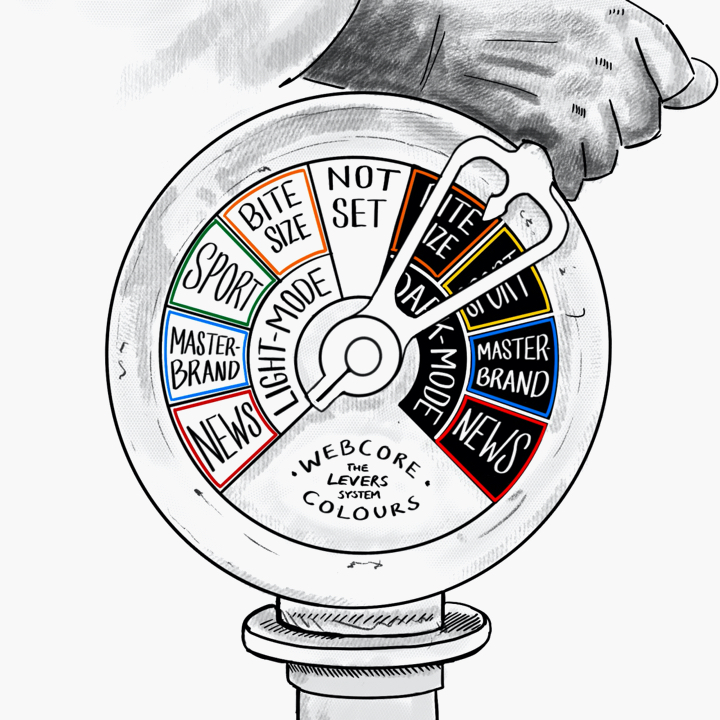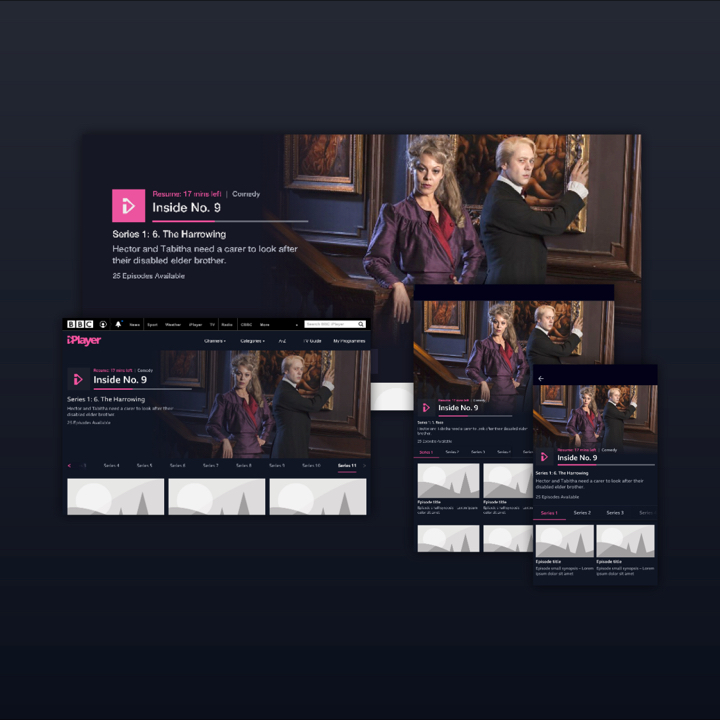Joining a project part way
Picking up on a project which had already been in progress. Understanding where the problems were, and figuring out how to unblock the team from their current situation. Learning that the UX team can provide product direction and inform the shape of the experience.
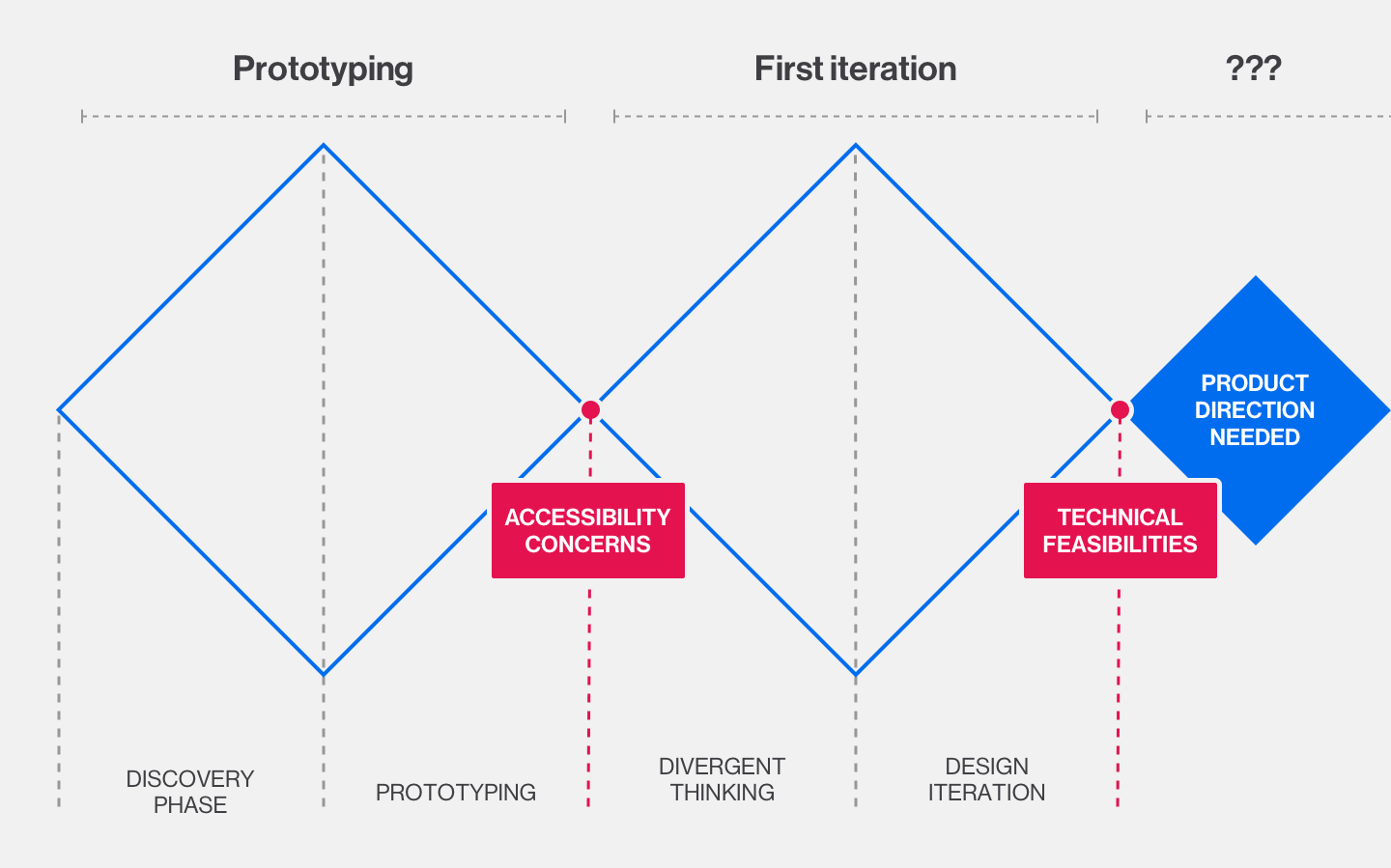
Taking stock of the situation
To unblock the team, I went back to basics. We had to move on from where we were, but without throwing away much of the good work done to date. Cliché: Throw the baby out with the bathwater. I brought the entire team together to focus on the positives, and to figure out the problem together. This was great because I was able to take the entire agile team with me down this new path.
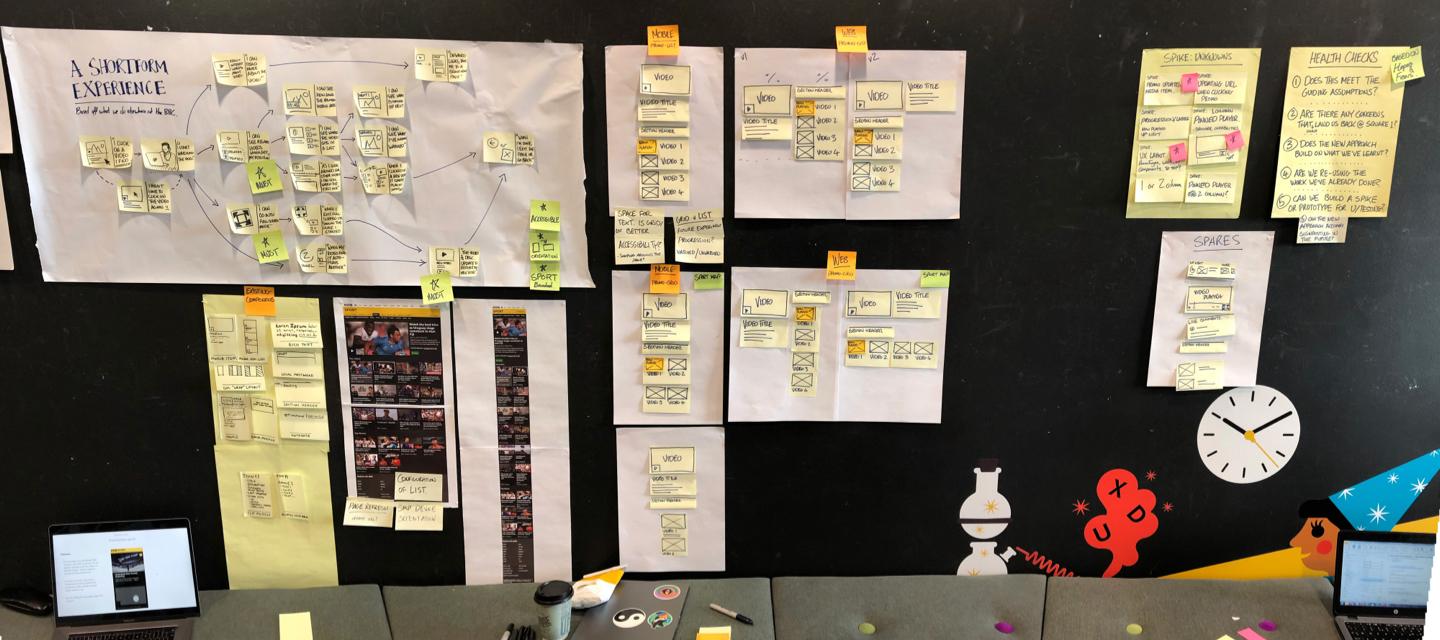
Understanding the new product direction better with research
I conducted guerilla research to give the team some new-found confidence in the revised approach. The last thing we wanted to do was to find ourselves back at square one, with another solution which wasn’t fit-for-purpose.
Guerilla testing was positive, but didn’t provide enough clarity.
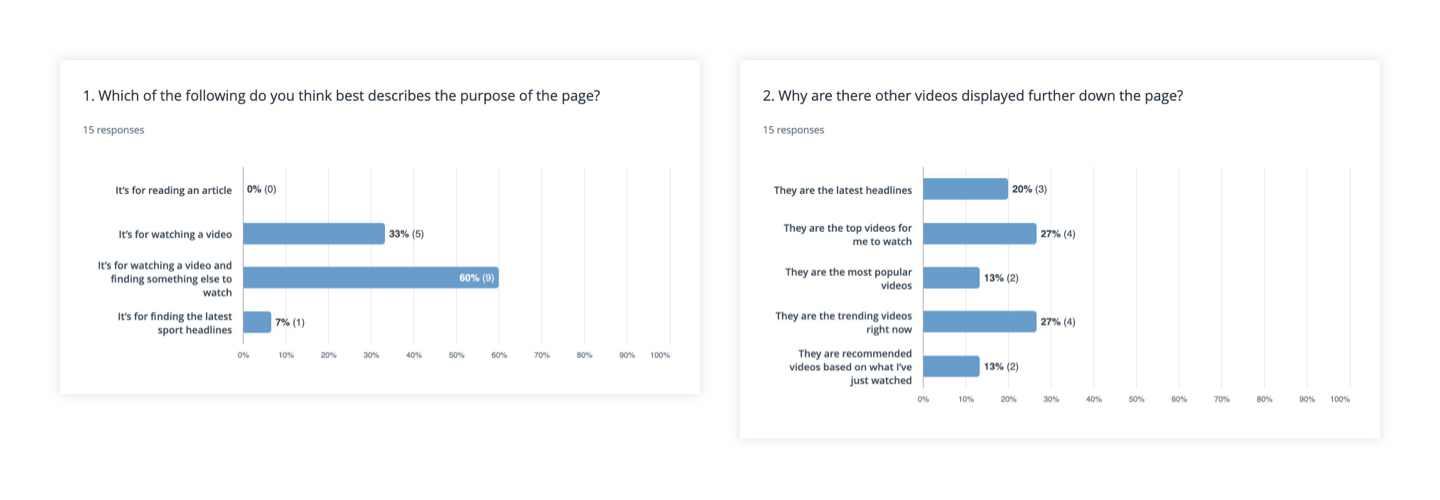
Then undertook some quick unmoderated user studies to provide a better overall picture of the situation. we were able to demonstrate that the audience would have a high comprehension of the experience we were now focussing on.
Combining testing methods
During this project, I learnt that it can be really powerful to mix different testing methods to gain more answers. Especially if two cheap and quick methods of testing can be combined to provide compelling feedback.
Multiple iterations before builds
Explain that this project had some amazing potential at the beginning. From the prototype, to the first iteration which couldn’t be made accessible – it was fantastic to be able to steer a project through these muddy waters and into live. The team now had something which we were confident would meet the needs of the business and that I was confident would provide a top-class user experience for all audiences.
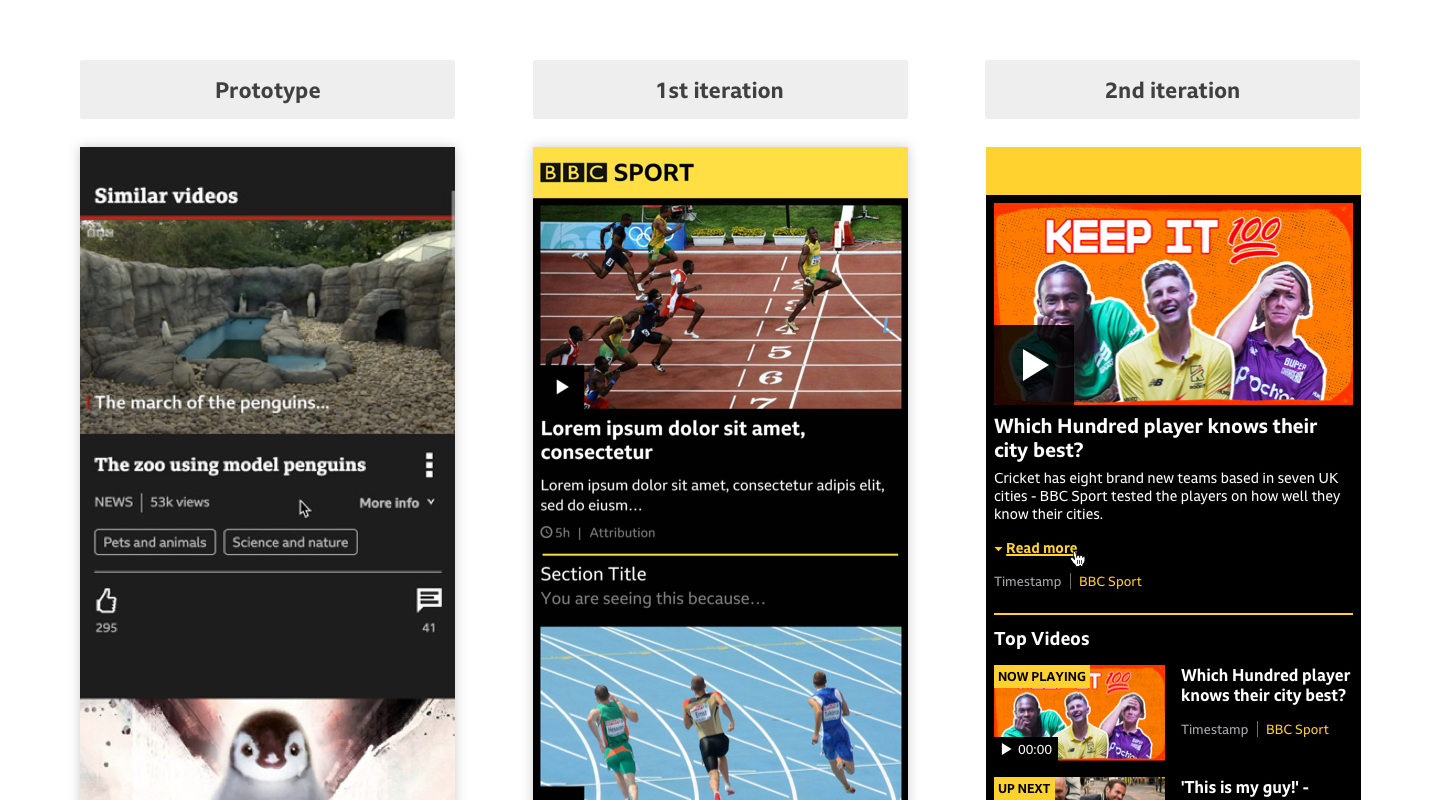
Super important to be able to quickly change course, informed by research, if the route the team was headed would lead to further trouble along the way. Now the product can continue to build on this first iteration which is providing a solid foundation.
Working with Design Systems
I was also one of the first designers to start building an experience using (what was) a new design system at the BBC. This required lots of collaboration with other designers across the BBC. I could identify when there was opportunity to reuse and potentially improve components. But to also manage tricky conversations around the scope of components and their simplicity.
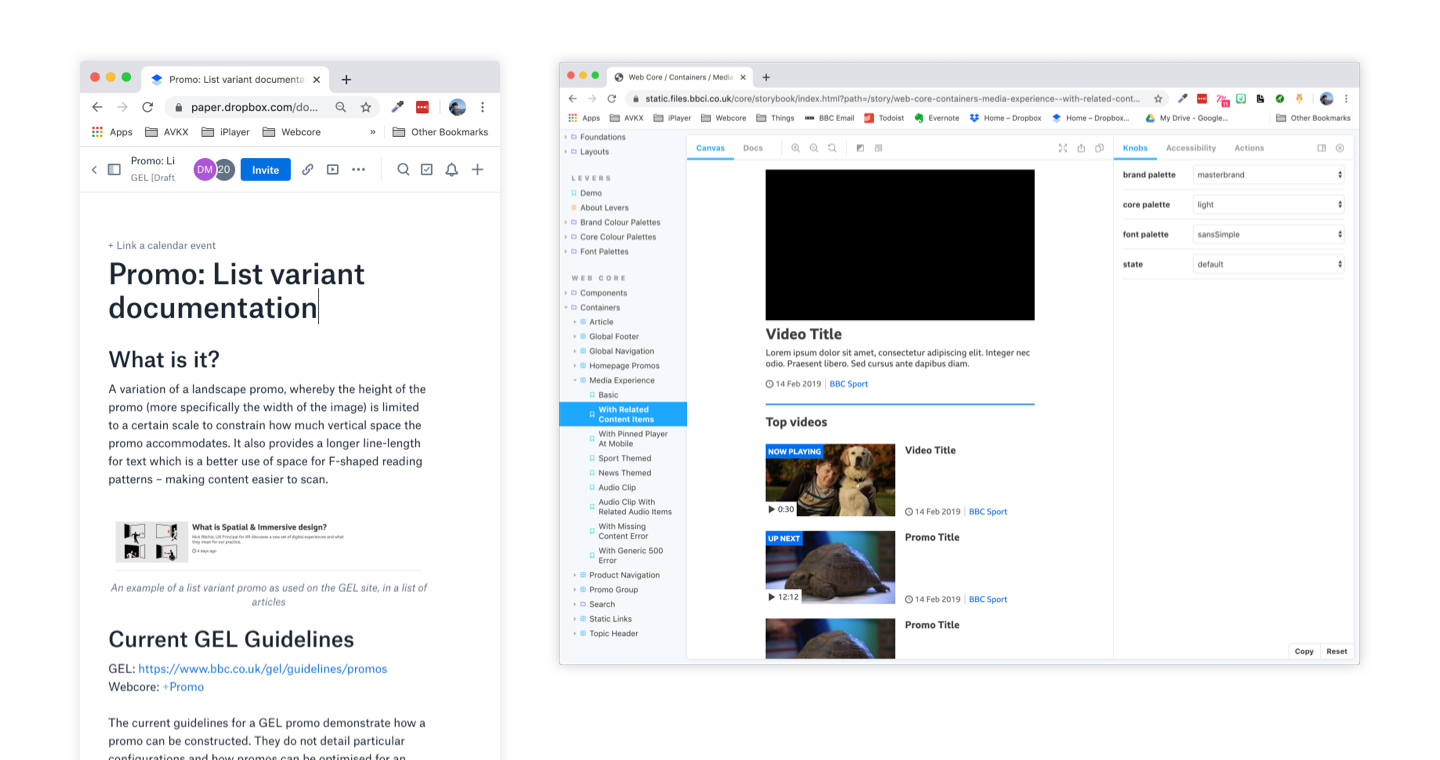
It’s true that what I wanted was at odds with what the Design System wished to provide to us. But I could build relationships with the Design System team, which was ultimately more beneficial to the team moving forwards, than pushing for subtle changes to components which would bloat and disrupt a team were we dependant on.
The build
This project was a little strange because it didn’t have a traditional set of ‘handover’ of requirements. The shape of the product formed from the conversations with the Design System team and the agile team I was working with. I really enjoyed pairing with developers, working with teams outside my own to build new components which could eventually be re-used by any team at the BBC.
The result
The short form video page was released to the audience in a BBC Sport Trial which also served to test the new ‘WebCore’ platform. A platform which will eventually power BBC Online. It was a new experience, completely accessible, built using shared components, which can eventually be themed to serve any product across the BBC.
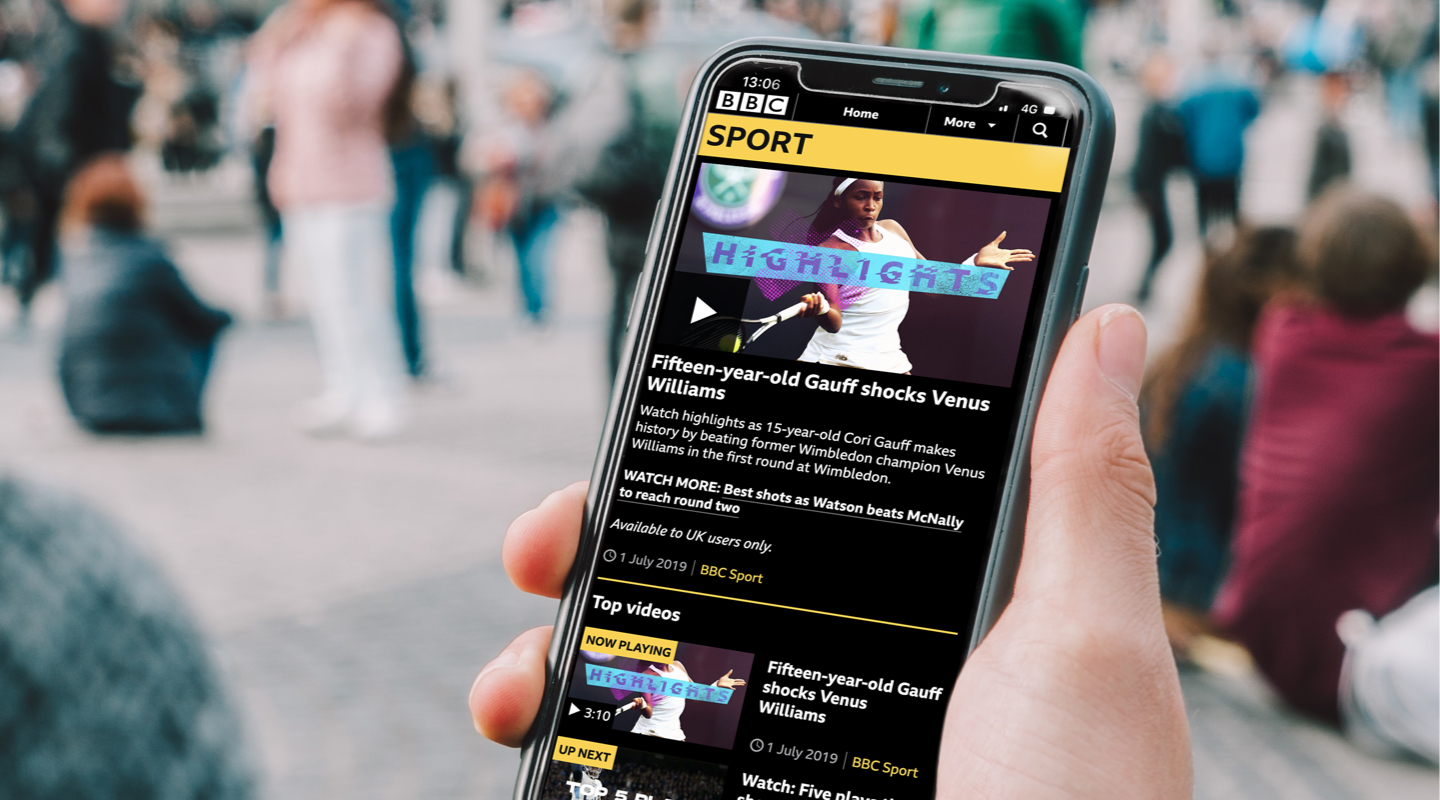
Three things I took away from this project
Involve the enture team when deciding a new direction This gave the project the footing it needed for success.
Pick your battles when collaborating with other teams Building a new platform for the BBC digital products isn’t an easy task. It’s better to build bridges for the sake of the platform, rather than burn them for the sake of the product you’re working in. There’s a greater good.
Keep learning about your product experience User research was conducted frequently, not just once. There’s now a wealth of ideas, ready to go.
